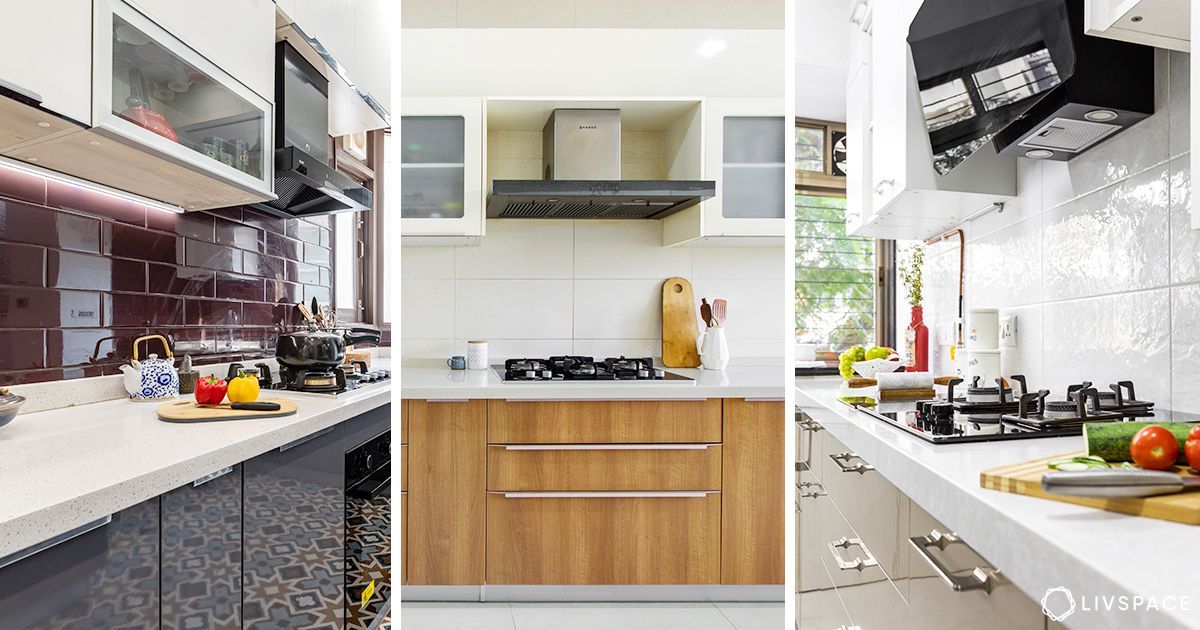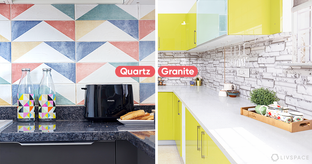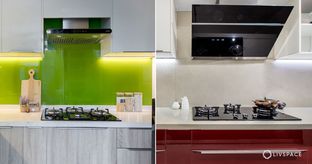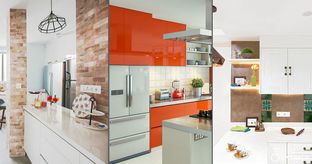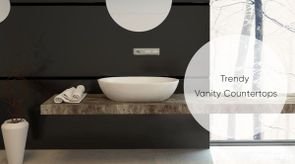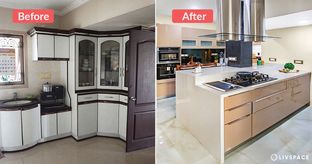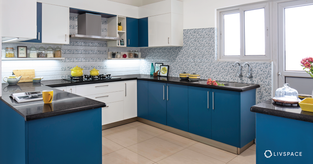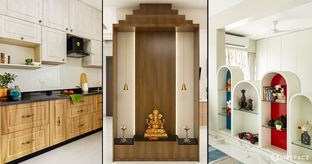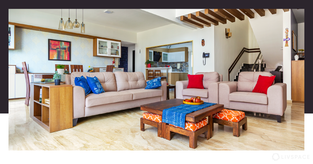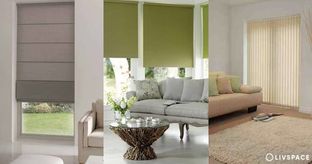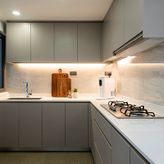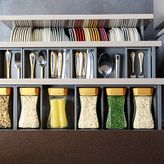In This Article
The kitchen is the heart and soul of your home. It’s that one space that needs to be both beautiful and functional. From the cabinets to the layout, every single aspect of a kitchen must be carefully designed to ensure convenience. The countertop is one such part of a kitchen that determines how much time you need to spend on cleaning and maintenance. While a range of kitchen countertop materials is available in the market, quartz countertops are quite popular among customers. In this guide, we give you all the details: pros, cons, maintenance and costs of quartz kitchen countertops. In short, we tell you why you should choose your quartz countertops (or not!).
What Is Quartz Stone?
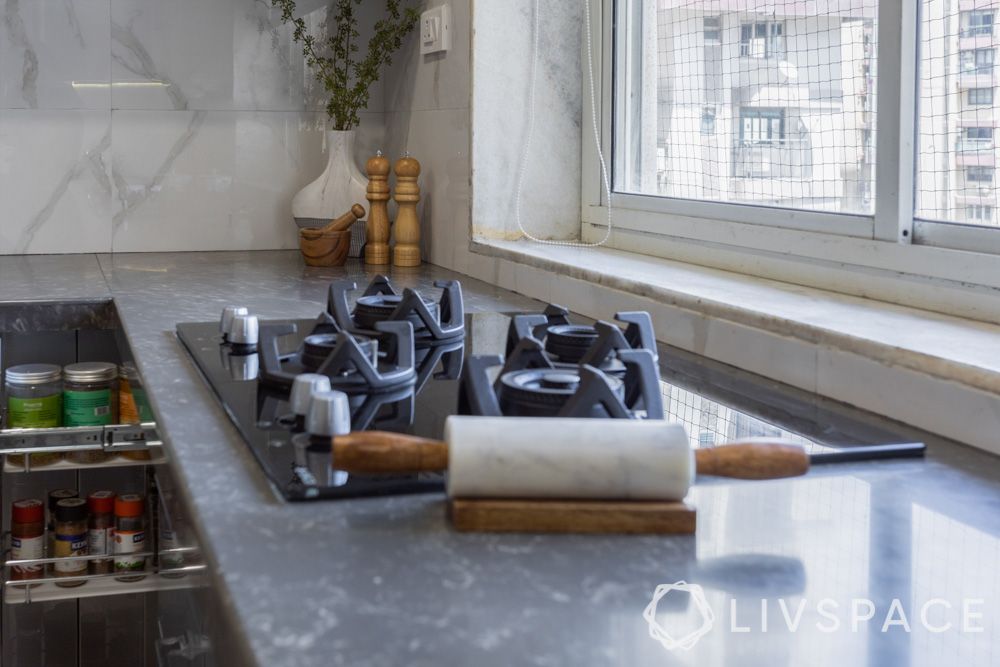
Quartz stone is a hard, crystalline material that is composed of silica. With many varieties, quartz stone is commonly used as a kitchen countertop or platform material in home interiors. It is also used for making jewellery and glass.
Quartz kitchen countertops comprise quartz chips or dust that’s bound with resin. These are engineered stone platforms that make sturdy countertops that are non-porous. The appearance of the quartz stone on your kitchen platform surface depends upon two things: how the quartz chips were ground and their size.
Quartz Countertops Prices
| Brand (Full slab) | Price |
| Unbranded | ₹25,000 to ₹30,000 |
| Branded | ₹45,000 to ₹60,000 |
| Premium Brands | ₹85,000 onwards |
What Are the Types of Quartz Kitchen Tops?
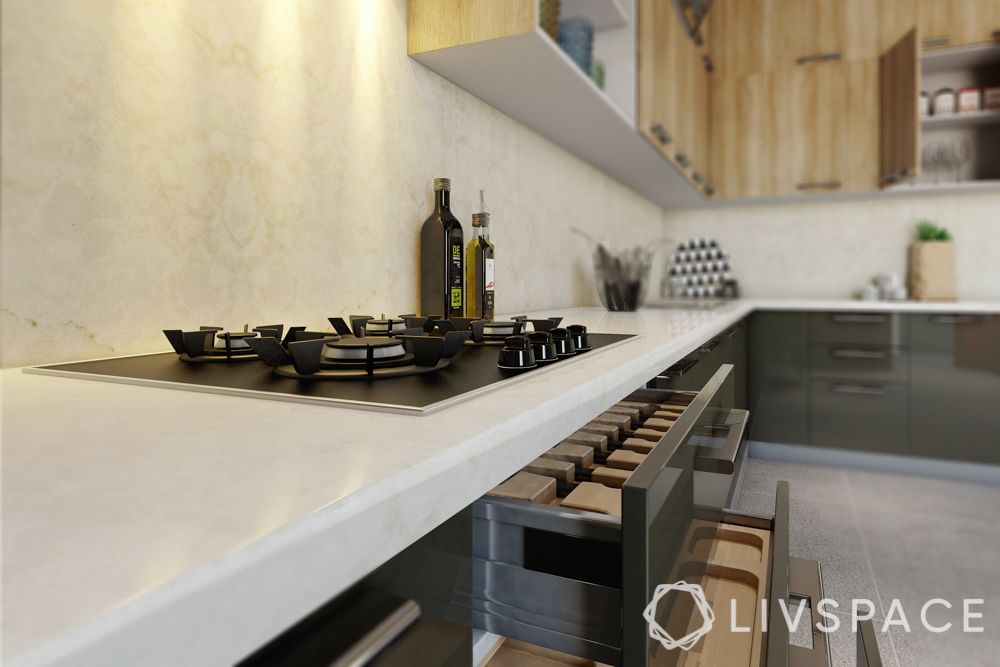
A quartz countertop is priced and categorised based on the thickness of the slab. Generally, quartz stone kitchen tops are available in two thicknesses — 15 mm and 20 mm. However, certain brands like Caesarstone also offer slabs of 13 mm thickness. On the one hand, thinner slabs can cost less and have a contemporary appeal, on the other, thicker slabs can be more durable in nature.
Quartz Countertops: Pros and Cons
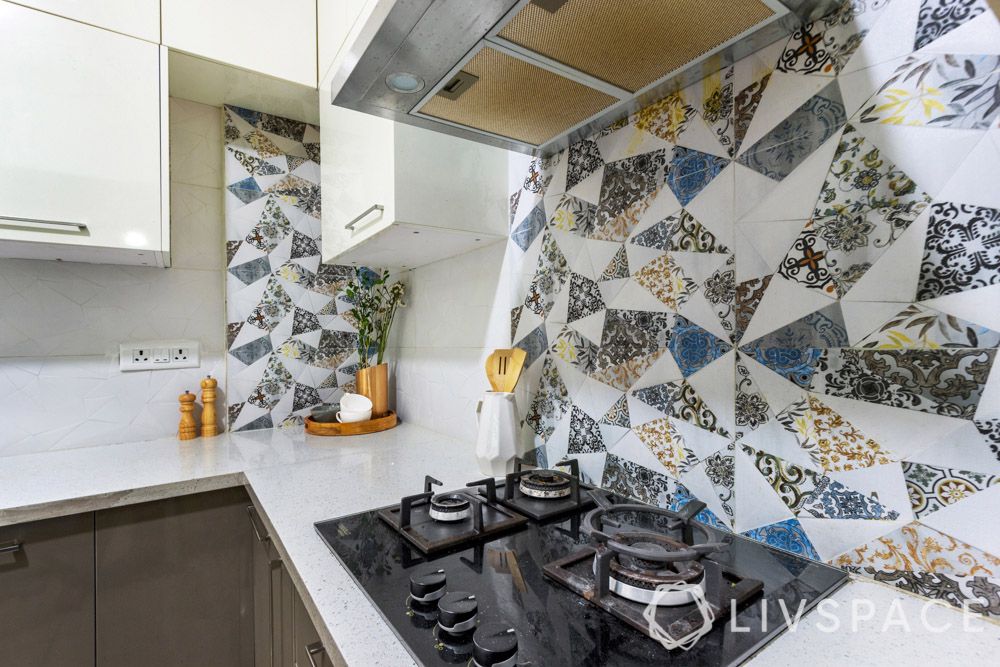
Pros of the Quartz Stone for Kitchen
- The best quartz countertops are extremely tough and durable
- Quartz stone platforms for kitchen can have a natural glossy sheen, a concrete-like granular texture, or a rough, rugged finish to match various interior design styles
- They are non-porous as well as stain and crack-resistant, making them antibacterial in nature
- Quartz countertops don’t require epoxy sealing very often as they are solid platforms
- Quartz countertops are easy to maintain – just clean them with mild soap, water and a soft cloth
- There is a wide variety of colours available for quartz countertops
Cons of Quartz Stone Countertops
- Quartz countertops are sensitive to UV light, which can result in discolouration, but this is also the case with any countertop material that is not meant for outdoor usage
- An engineered quartz platform is not as heat-resistant as natural stones, so it is advised that you keep pots and pans straight from the flame on a hot pad or a trivet
- It is costlier than granite but also more durable
Quartz Countertops vs Granite
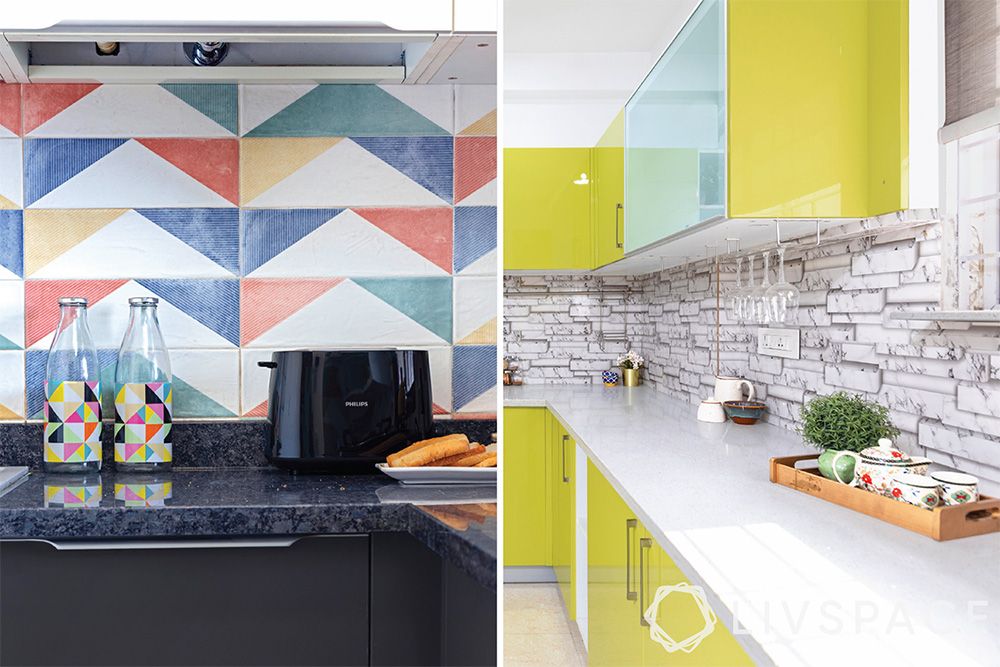
Granite countertops have always been the go-to option for Indians. However, in recent years, quartz platform designs are gaining popularity. When it comes to comparing granite vs quartz, both of them have their own waxes and wanes. For instance, when compared to granite, a quartz countertop is harder and thus, more durable. It is also non-porous and stain-resistant, and hailed for reducing maintenance efforts.
Quartz countertops are also available in a larger variety of colours and textures as compared to granite. However, unlike quartz, granite is heat-resistant, making it a good choice for kitchens where heavy-duty cooking happens.
The closing arguments for both are incomplete without talking about cost and budget. Hence, in terms of prices, quartz countertop is often costlier than granite, however, as we mentioned above, it can outlive granite in more ways than one.
How to Select Quartz Countertops?
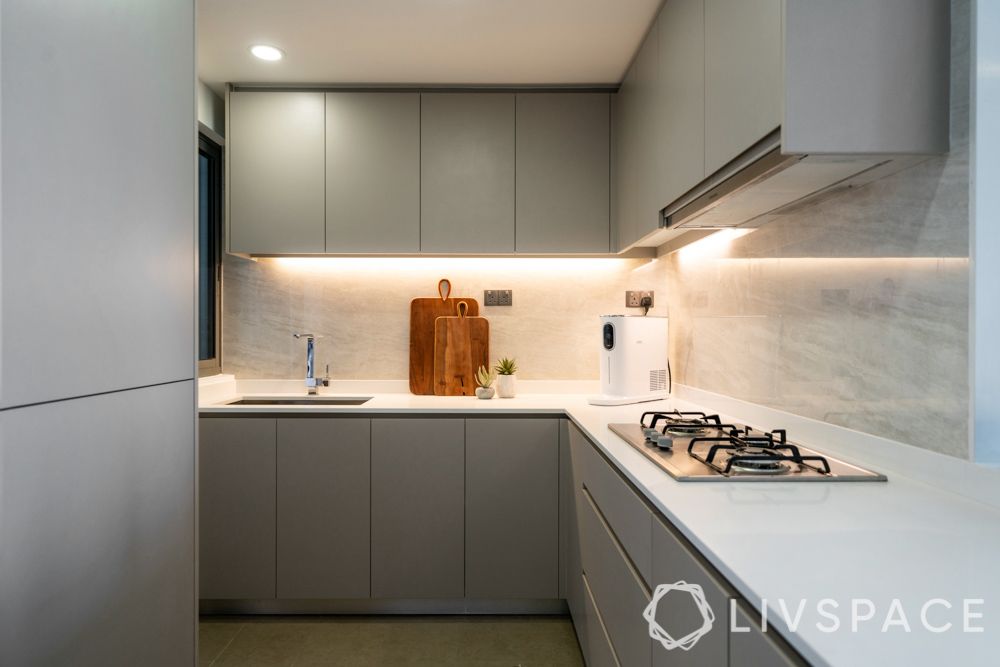
A kitchen countertop is a long-term investment. Thus, it is essential that you choose it wisely. Here are some expert tips to help you select a quartz for kitchen top.
- Always buy good quality quartz from a reputed brand
- Quartz countertops with thickness above 20 mm are a better choice as they offer a smoother finish and durability
- While choosing quartz countertop colours, take into consideration the overall look that you hope to achieve for your kitchen
- Since an engineered quartz slab is not as heat-resistant as natural stone slabs, always use insulating pads in the kitchen
Also Read: What Is Kalinga Stone? Price, Material, Durability and All You Need to Know
Things You Didn’t Know About Quartz Countertops
- A quartz countertop is not always made of quartz alone. Sometimes, a mixture of stones like quartz, granite, and marble is held together by a cement-based binder
- Quartz countertops are eco-friendly as they are made of chips and dust left-over from other factories
- Shopping malls and airports often have quartz flooring made of large, durable slabs
How to Maintain Quartz Countertops
If you’re going to choose quartz for your kitchen countertop, you must also know the right way to maintain it. Here are a few things to remember:
- Quartz slab is non-porous, hence, it can withstand any acidic solutions that you may choose. However, don’t use any oil or wax-based, high PH cleaners as they can affect the resin used in your slab
- Quartz countertops are engineered to survive rough use. But if you want your kitchen top to last longer, then we suggest you use chopping boards and hot pads to avoid any damage over time
- Apart from this, you can also take care to clean lemon juice, wine or tea spills that leave stubborn stains as quickly as you can
Premium and elegant, a quartz countertop can give your entire kitchen a modern makeover. Looking for more kitchen countertop materials? Here are 10 most popular materials for kitchen counters.
How Can Livspace Help You?
We hope you found our ideas useful! If you want your home to be just as beautiful, then look no further. Book an online consultation with Livspace today.
Wondering how our customers feel about working with Livspace? You can check out the Livspace kitchen reviews here!
***Colours and finishes are subject to availability. Please check with your nearest Livspace store to check availability.
We love hearing from you! Write to us with your comments and suggestions at editor@livspace.com
FAQs:
1. Is Quartz More Expensive Than Granite?
Yes, quartz countertop is more expensive than granite. That’s because quartz is an aesthetic engineered material, made in an eco-friendly way to be antibacterial and more durable.
2. What Is the Downside to Quartz Countertops?
Quartz countertops are not as heat-resistant as natural stone slabs, but are more solid and non-porous.
3. Can You Put a Hot Pan on Quartz?
We recommend you use hot pads and trivets to keep hot utensils on your quartz kitchen top to any avoid heat damage to resin on the surface.
4. Will an Air Fryer Damage a Quartz Countertop?
Yes, the heat from the air fryer can damage your quartz countertop. We suggest you keep bamboo or silicon pads beneath your fryers to avoid any damage.
